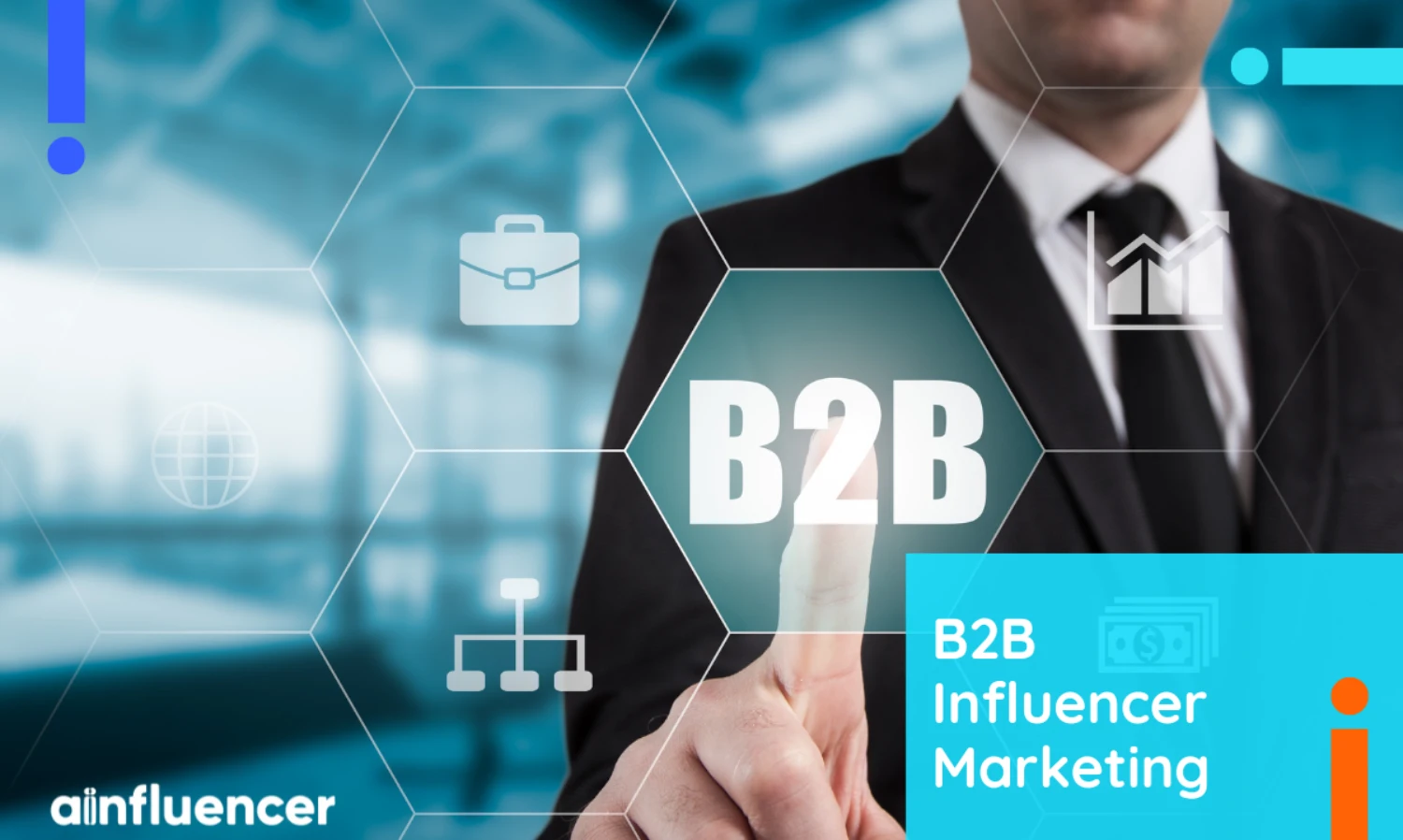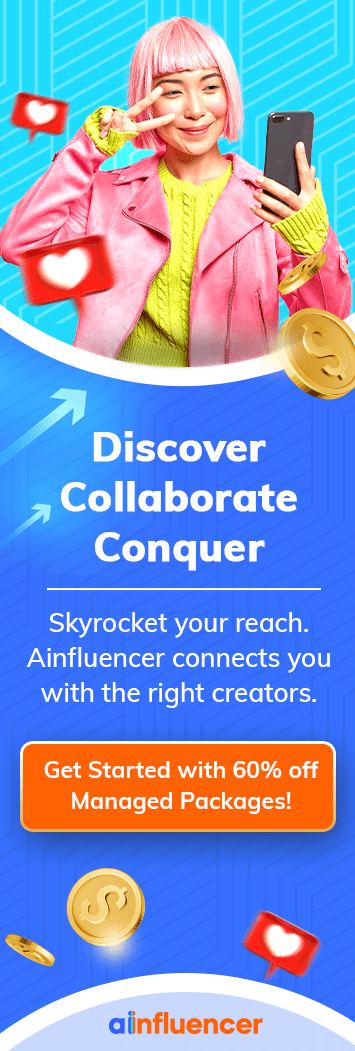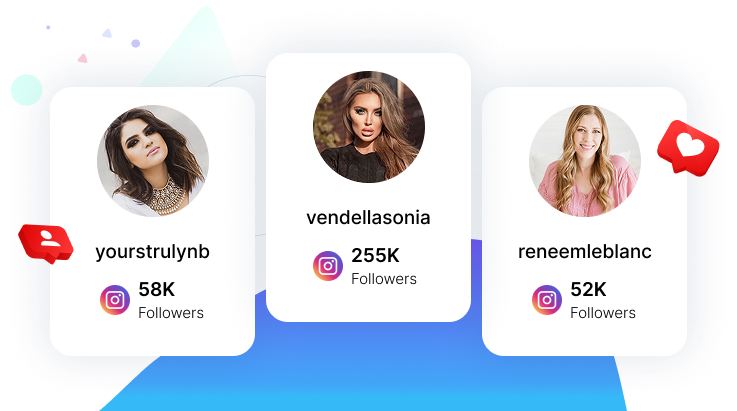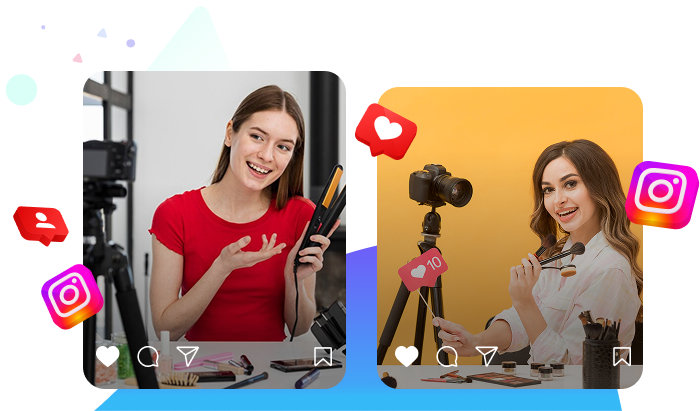B2B influencer marketing is no longer just a niche strategy—it’s becoming a core part of modern marketing. Curious why? Well, buyers today trust insights from real industry experts and peers much more than traditional ads.
But that’s not all! The growth of B2B influencer marketing is also connected to the rise of short videos and expert content on platforms like YouTube and Instagram. But here’s the best part: influencer marketing platforms are making it super easy for B2B brands to find the right influencers, and create effective campaigns.
So, how does it all work? What are the key benefits? And most importantly, how can you create a winning strategy?
In this guide, we’ll walk you through everything you need to know—from how B2B influencer marketing works to the best platforms to use. Plus, we’ll share real-world examples, mistakes to avoid, and why Ainfluencer might just be the perfect match for your next campaign.
Ready to dive in? Let’s get started!
What Is B2B Influencer Marketing?
B2B influencer marketing is about teaming up with trusted experts to promote your brand to other businesses. Unlike celebrity endorsements, these influencers are chosen for their expertise, not just their followers.
Here’s why it works:
- Expert authority: Influencers are trusted experts, so their endorsement boosts your brand’s credibility.
- Niche focus: B2B campaigns target specific industries or roles, like CFOs or engineers.
- Collaborative content: It often involves co-creating valuable content like blogs, webinars, and videos.
- Long-term relationships: Successful campaigns focus on building ongoing partnerships, not just one-time posts.
According to an eMarketer report, B2B influencer marketing is all about creating value, building trust, and working together over time. This is what makes this influencer marketing approach different from consumer-focused influencer marketing.
Benefits of Influencer Marketing for B2B Brands
Marketers point to five key benefits of influencer marketing for b2b brands. These benefits show how B2B influencer marketing can help build awareness, position your brand as a leader, and drive real results. Let’s see what they are:
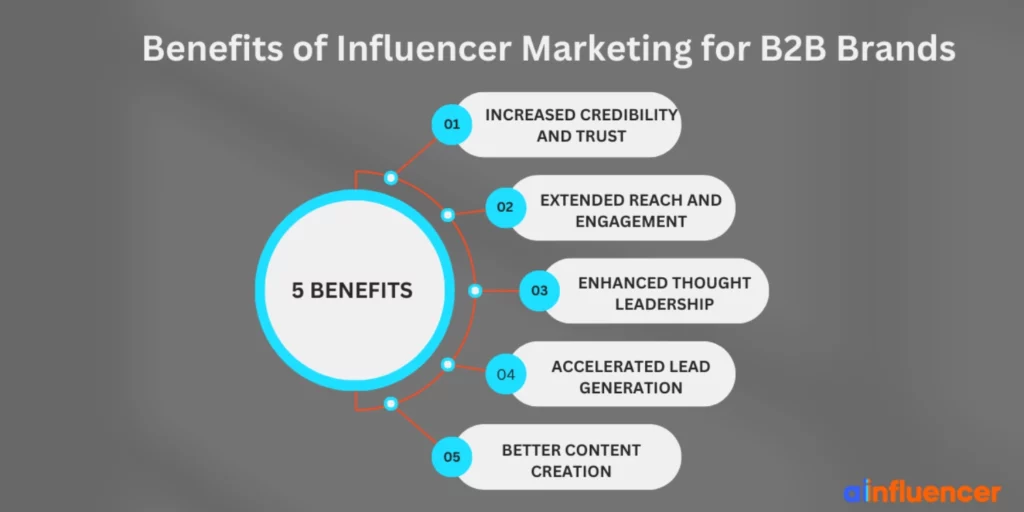
- Increased Credibility and Trust: Partnering with respected experts makes your content more believable. As TopRank Marketing’s CEO Lee Odden says, “collaborating with experts produces content that’s trusted by the audience.” In fact, 81% of brands using influencer marketing report that it boosts credibility.
- Extended Reach and Engagement: Influencers already have loyal followers. By teaming up, your brand taps into new networks and keeps content alive longer. Influencer content can be repurposed across webinars, emails, and ads, keeping the impact going.
- Enhanced Thought Leadership: Co-creating content like webinars or white papers with influencers puts your brand at the forefront of your industry. It boosts both your authority and the influencers’, helping you stand out as a leader.
- Accelerated Lead Generation: Influencers help drive warmer leads, leading to faster conversions. Some B2B brands have seen massive boosts, like a 725% increase in sign-ups. B2B influencer marketing campaigns have been shown to generate an average 520% ROI—that’s $5.20 for every $1 spent.
- Better Content Creation: Collaborating with influencers brings fresh, high-quality content that speaks directly to your audience. Influencers offer unique perspectives and ideas, filling gaps and enriching your content strategy.
How to Create an Effective B2B Influencer Marketing Strategy?
Here’s a simplified guide to help you set up a successful b2b influencer marketing campaign:
- Know Your Audience First: Before diving into influencer marketing, you need to understand your audience. Who are you targeting and what challenges do they face?
- Set Clear Goals: What do you want to achieve? Doesn’t matter if it’s generating leads, raising brand awareness, or educating your audience, setting clear, measurable goals will help you select the right influencers and track your success.
- Find the Right Influencers: Next, search for credible influencers who have authority in your industry. Don’t focus solely on follower count; relevance and trust are key.
- Build Meaningful Relationships: It’s not just about one-time posts. Treat influencers as partners by engaging with their content and offering value in return, like guest blogs or access to exclusive data.
- Plan Your Collaboration Format: What type of content will you create together? It could be webinars, eBooks, product demos, or blog posts. Choose the format that best aligns with your goals and the influencer’s strengths.
- Create Valuable, Engaging Content: Work together to create content that provides value to your audience. Let the influencer’s unique voice shine through while integrating your key messages. Authentic, educational content will resonate better with your target audience.
- Allocate Your Budget and Timeline: Decide how much to spend on influencer fees, content production, and promotion. Be realistic about your budget and how long you want your campaign to run—typically, B2B influencer campaigns last around 2–6 months..
- Promote and Amplify: Once the content is live, don’t just leave it there. Share it across your channels (website, email, social media) and encourage your influencer partners to do the same.
- Measure and Optimize: Track key performance indicators (KPIs) like engagement, leads, or conversions. Use analytics to see which content formats work best (e.g., webinars or product reviews).
Which Social Media Platforms Are Suitable for B2B Influencer Marketing?
B2B influencer marketing relies on platforms that help brands connect with experts, thought leaders, and professionals who are trusted and respected in their industries.
Some of these platforms include:
- LinkedIn: LinkedIn is ideal for professional networking, building B2B partnerships, and industry-specific influence. As the top platform for business professionals, it’s where leaders, executives, and experts share valuable insights and influence important decisions.
- YouTube: YouTube is mostly known for in-depth product demos, tutorials, and reviews, making it ideal for showcasing SaaS products, tech tools, and business services. Its long-form video format allows influencers to explain complex B2B offerings clearly, build authority, and provide valuable how-tos and expert insights.
- X (Twitter): Best for real-time industry news and expert commentary, X is making it ideal for thought leadership, launching new business initiatives, and driving traffic to content. Its fast-paced nature supports conversations, news sharing, and personal brand building, especially for influencers in tech, marketing, and finance.
- Instagram: Instagram is great for visual storytelling, making it a powerful tool for showcasing company culture, brand personality, and behind-the-scenes moments. Though not typically B2B-focused, it performs well in creative or tech-driven industries by humanizing brands through event coverage, product visuals, and team highlights—perfect for building community and strengthening brand identity.
Learning from Successful B2B Influencer Marketing Campaigns
Real-world B2B influencer marketing campaigns offer valuable lessons. Here are some standout campaigns that show how influencers can create a meaningful impact:
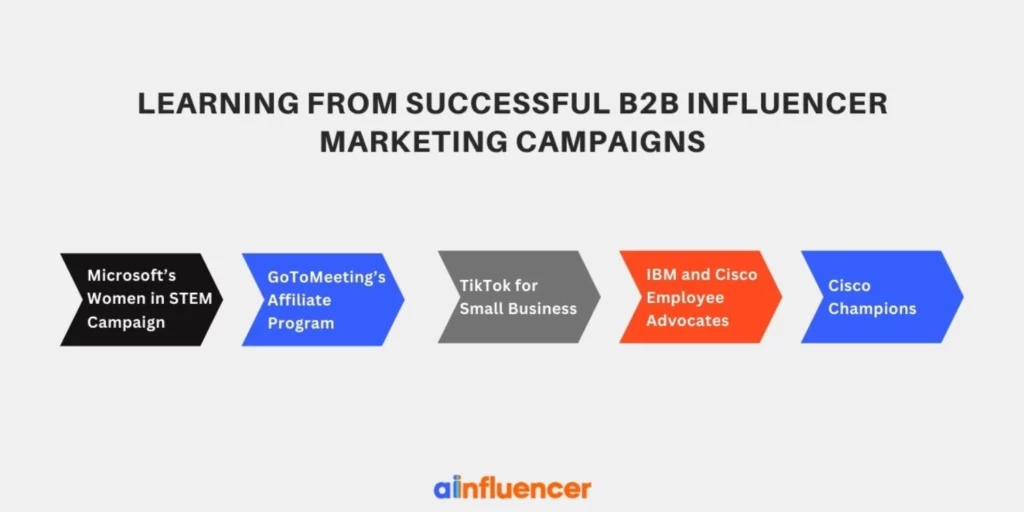
- Microsoft’s Women in STEM Campaign: Microsoft partnered with various influential women to spotlight women in STEM. This visual storytelling campaign reached a massive audience of over 91 million people and garnered 3.5 million Instagram likes in one day.
- GoToMeeting’s Affiliate Program: GoToMeeting took a different approach by using content partners as “influencers” through an affiliate program. By offering a CPA deal to publications for blog posts and reviews, they saw a dramatic 725% increase in paid accounts and a 701% jump in trial signups year-over-year
- TikTok for Small Business: TikTok, a platform often associated with B2C, leveraged small businesses as influencers in their campaign to promote TikTok advertising. They featured successful business owners offering tips, amplifying them on the TikTok Small Business page.
- IBM and Cisco Employee Advocates: Both IBM and Cisco turned their own employees into brand influencers. IBM encouraged staff to share product experiences on social media, while Cisco’s “Champions” program featured IT pros in podcasts and product previews.
- Cisco Champions: Cisco’s “Champions” community is a prime example of how employee advocates can turn into powerful influencers. IT professionals participate in Cisco’s content, provide feedback, and get early access to products.
Top Mistakes to Avoid in B2B Influencer Marketing
Even experienced marketers can make missteps in B2B influencer marketing. Here’s a breakdown of key mistakes and how to avoid them:
- Chasing Vanity Metrics,
- Neglecting Influencer Motivation,
- One-and-Done Campaigns,
- Ignoring Brand Fit,
- Poor Communication,
- Neglecting Measurement.
By avoiding these mistakes, you’ll maximize the impact of your B2B marketing campaigns. Prioritize relevance, effective communication, and strong partnerships to ensure long-term success.
What’s New in B2B Influencer Marketing?
B2B influencer marketing is changing fast. Here are the key trends to watch:
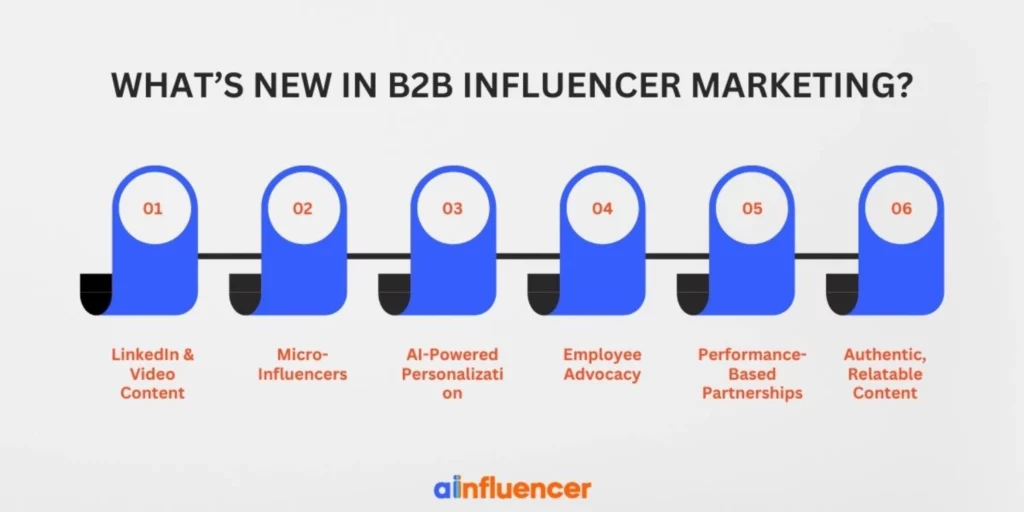
- LinkedIn & Video Content: LinkedIn is becoming a hub for B2B influencer content, with short-form videos like Reels and carousels gaining traction. Over 60% of B2B buyers are influenced by such content, making video campaigns essential for 2025.
- Micro-Influencers: With 10k-100k followers, Micro-influencers are becoming more valuable, offering deeper engagement and authenticity, especially in specialized industries.
- AI-Powered Personalization: AI tools are optimizing influencer selection, performance analysis, and content creation, enabling brands to run highly targeted campaigns.
- Employee Advocacy: Encouraging employees to become brand advocates on social media boosts credibility and organic reach, helping to humanize the brand.
- Performance-Based Partnerships: Affiliate and pay-for-performance models are gaining popularity, with influencers earning based on leads or sales, increasing ROI tracking.
- Authentic, Relatable Content: B2B brands are shifting towards more authentic, human content, moving away from polished ads to behind-the-scenes insights and real stories.
Ainfluencer: The Best Influencer Marketing Platform for B2B Brands
For B2B brands seeking to engage influencers without the hefty fees or long-term commitments of traditional platforms, Ainfluencer is the solution.
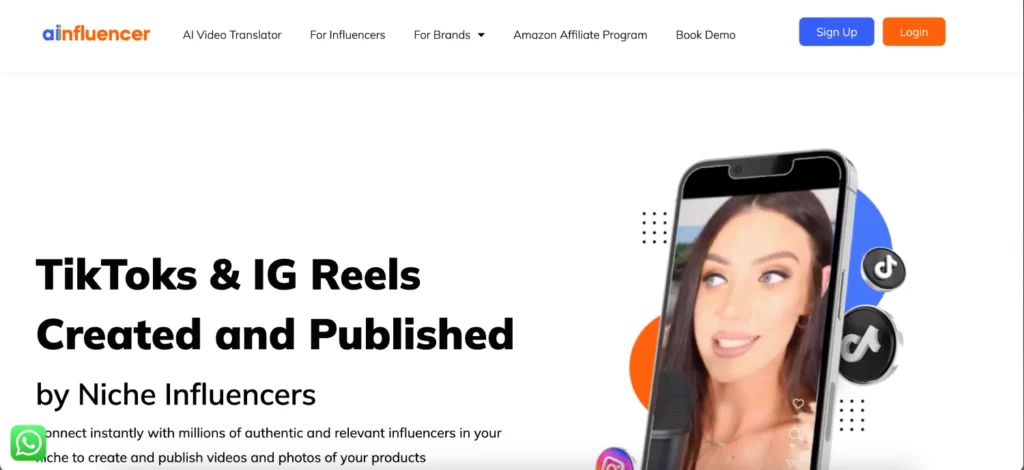
Unlike many other platforms, Ainfluencer offers a completely free DIY marketplace where brands can discover and work with influencers—without breaking the bank. Here’s why Ainfluencer is the top choice for B2B influencer campaigns:
- 100% Free with No Hidden Fees: With Ainfluencer, you can create unlimited campaigns and send as many influencer invites as you like—all at no cost.
- AI-Powered Influencer Matching: Ainfluencer uses AI to help you find the best influencers for your B2B brand. The platform offers powerful search filters based on niche, industry, and social platforms (Instagram, TikTok, YouTube).
- Simple and Efficient Campaign Management: Ainfluencer streamlines the campaign process. You can create detailed campaign briefs and attract influencer proposals directly on the platform.
- Secure Transactions with Escrow Payments: This platform ensures secure payments through its built-in escrow system.
- Affiliate Marketing and E-Commerce Integration: Ainfluencer integrates with affiliate marketing programs, making it perfect for B2B e-commerce brands. You can set up affiliate programs, track conversions, and even connect your Shopify store to manage influencer promotions.
- Global Reach with AI Video Translation: For global B2B brands, Ainfluencer’s AI Video Translator is a game-changer. It enables influencers to translate their video content into over 200 languages, while retaining the original tone and message.
- Comprehensive Influencer Analytics: Before inviting influencers to your campaign, Ainfluencer provides in-depth analytics on each influencer.
As a free influencer marketing platform, Ainfluencer offers an unbeatable combination of affordability, AI-powered tools, and transparency, making it an ideal platform for B2B influencer marketing. Ready to grow your B2B brand with influencer marketing?
Create a Free AccountConclusion
B2B influencer marketing is a powerful strategy that helps businesses build trust, expand their reach, and generate leads by leveraging the authority of industry experts. By collaborating with influencers, B2B brands can create authentic, valuable content that resonates with their target audience. However, success lies in crafting a well-thought-out strategy, setting clear goals, and maintaining long-term relationships with influencers.
FAQs
It depends on your campaign size and budget. For more focused campaigns, just a few well-chosen influencers (even smaller ones) can work well.
Larger campaigns might involve more influencers. The key is to make sure their message aligns with your brand. Platforms like Ainfluencer let you invite as many influencers as you need, so you can start small and grow.
Absolutely! Research shows it’s a must-have strategy. 94% of B2B marketers say it works, and 85% are already using it. Influencers help you reach hard-to-get audiences, build trust, and attract better leads.
As decision-making groups grow, peer recommendations (from influencers) are becoming more important than just brand messages.
To avoid common mistakes, don’t just look at follower counts—focus on quality and relevance. Make sure you communicate clearly and have solid contracts. Treat influencers as long-term partners, not just one-time promoters.
